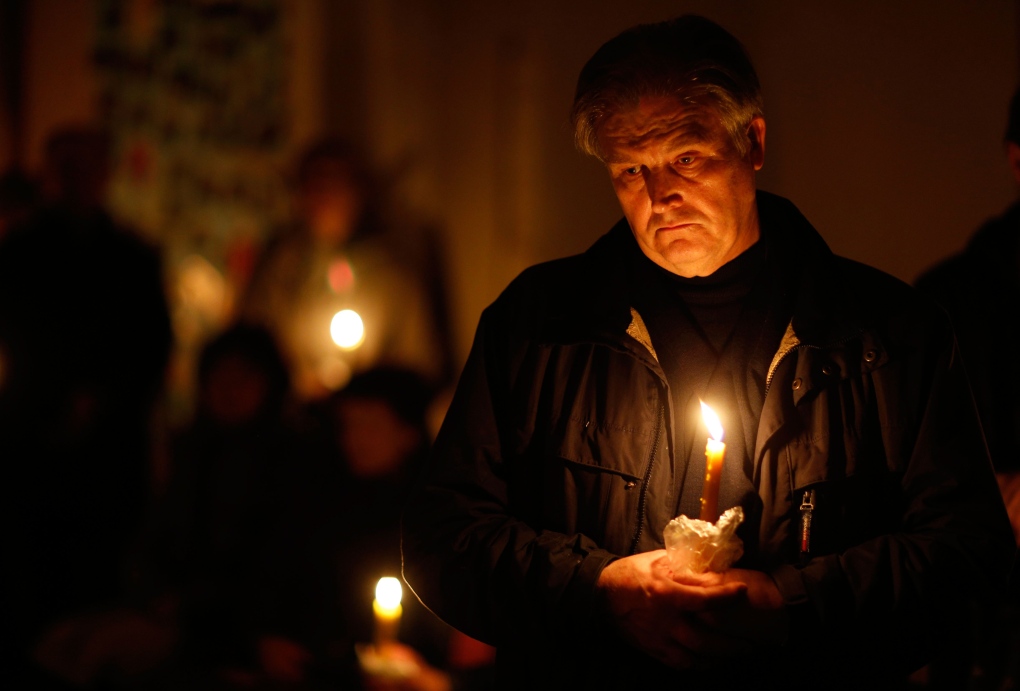A new survey from the Angus Reid Institute has found that a majority of Canadians believe in some form of life after death, a proportion that has held steady for decades.
Conducted in February and March, the survey gathered responses from more than 2,000 Canadians, with a variety of religious affiliations, across the country. Continuing a trend found in prior surveys by ARI and Gallup, at least three in five respondents said they believed in an afterlife.
"Whether that is the heaven or hell of the Christian faith, the Jannah or Jahannam of Islam, or the reincarnation of the soul believed by Sikhs and Hindus. The belief in the afterlife has been held at a majority level steadily in survey data seen back to 1960," an ARI release of the survey results reads. "Only one-in-eight (13%) Canadians 'definitely' ruled it out."
Proportions of those who believe in an afterlife varied across the country, with survey respondents in Ontario and the Prairies more likely to believe, and those on Canada's coasts and Quebec more commonly expressing doubts.
Manitoba had the highest proportion of those who believed either somewhat or strongly in an afterlife at 72 per cent, followed by Saskatchewan (69 per cent), Alberta and Ontario (63 per cent), British Columbia (60 per cent), the Atlantic region (59 per cent) and Quebec (50 per cent).
Quebec also had the highest rate for strong feelings of doubt regarding an afterlife at 17 per cent, compared to 13 per cent among the national population and six per cent in Saskatchewan, where the smallest proportion of Canadians strongly disbelieved.
"Quebecers are the least likely to believe in a life after death, perhaps owing to that province’s higher propensity for secularism," the release reads.
Rates of belief also varied by religious affiliation. Muslim respondents were the most likely to report a belief in the afterlife, with 87 per cent saying they believed somewhat or strongly, followed by Christian (76 per cent), Hindu (71 per cent) and Sikh (67 per cent) respondents.
Among Christian denominations examined in the survey, Evangelicals were the religious group most likely to report they believed in an afterlife at 93 per cent, with mainline Protestants and Roman Catholics less likely to believe, at 75 and 67 per cent, respectively.
Among the religions examined, Jewish respondents were the only group for which fewer than half reported they believed in an afterlife – possibly a reflection, ARI notes, of what it describes as "ambiguity on the matter" in Judaism's teachings.
"The belief in some sort of life after death is a core tenet of many religions," the survey release reads. "What that life comprises varies."
Conducted shortly before Easter, the survey also asked respondents about their beliefs regarding the resurrection of Jesus Christ, which the holiday and certain religious observances commemorate.
Among Christian respondents, 48 per cent of Catholics, 55 per cent of mainline Protestants and 81 per cent of Evangelicals reported they agreed or strongly agreed that the resurrection was a historical event occurring in the first century. Across all Christian denominations in the survey, 21 per cent reported they didn't know or preferred not to answer.
Among non-Christian faiths, 26 per cent of Muslim, 16 per cent of Hindu and Sikh and nine per cent of Jewish respondents indicated they strongly or somewhat agreed with the statement.
Hindu and Sikh respondents reported the highest uncertainty or non-participation in the question, at 63 and 56 per cent, respectively, reporting they either weren't sure or preferred not to answer.
"The Easter weekend is an important one on the Christian calendar, marking the resurrection of Jesus Christ after his death on the cross," the release reads. "This account is in the New Testament of the Bible, but whether or not this was a historical event is an unsettled matter."
Methodology
The 2024 survey was conducted by ARI and Cardus between Feb. 20 and 25, 2024 among a representative, randomized sample of 2,026 Canadian adults. The institute notes that a sample of that size carries a margin of error of plus or minus two percentage points, 19 times out of 20. Percentages may not add up to 100 due to rounding.
Additional survey research was conducted between March 11 and 14, 2024, among Canadians from four faith groups including Muslim, Hindu Jewish and Sikh respondents.





































